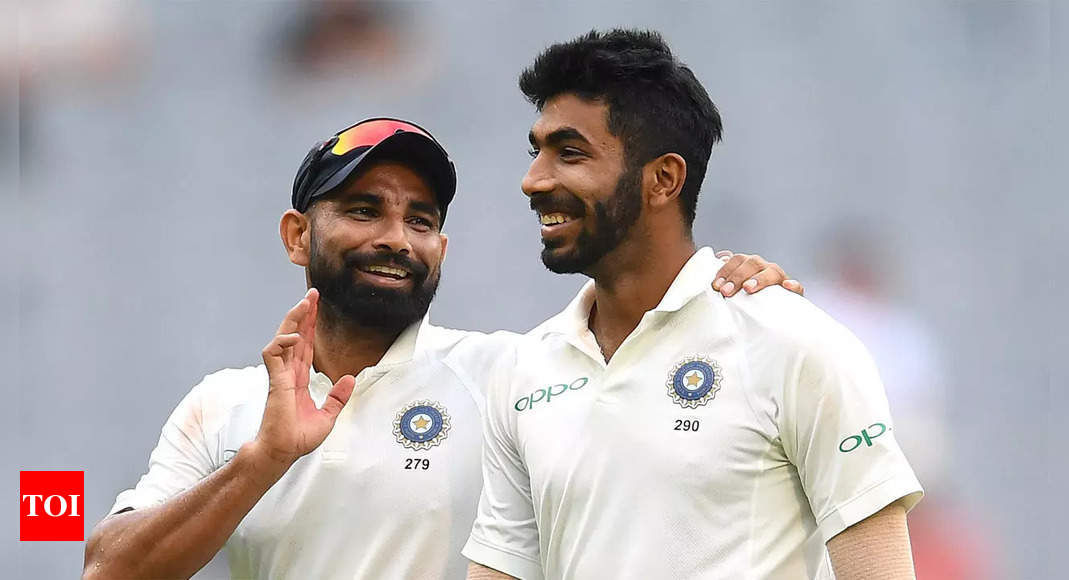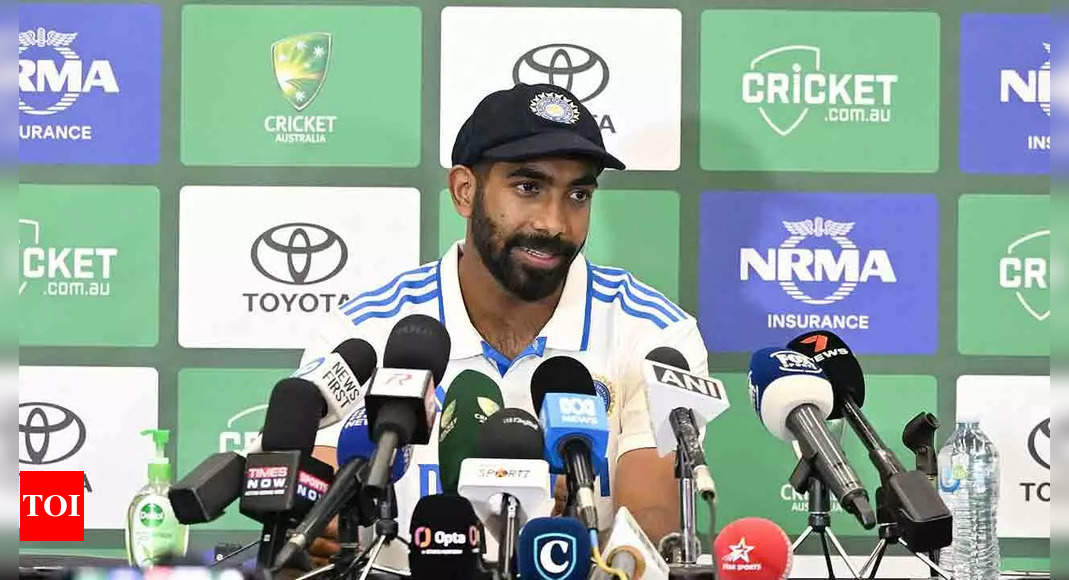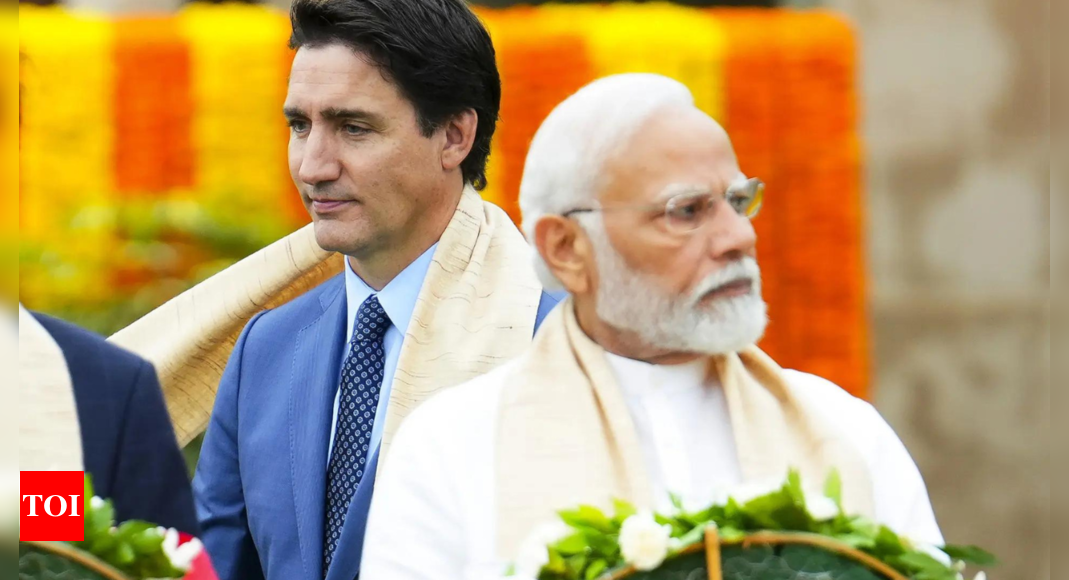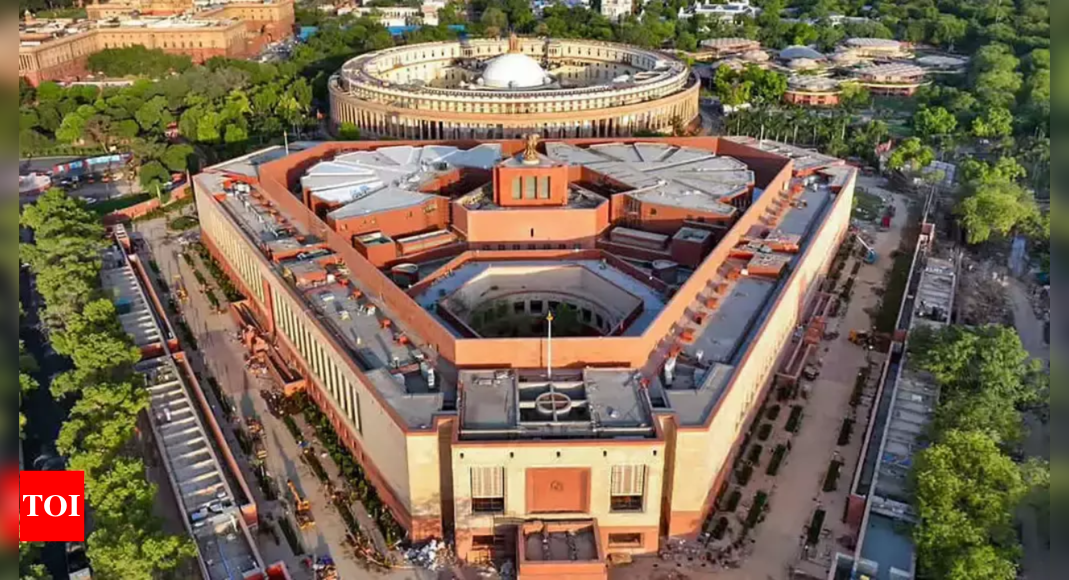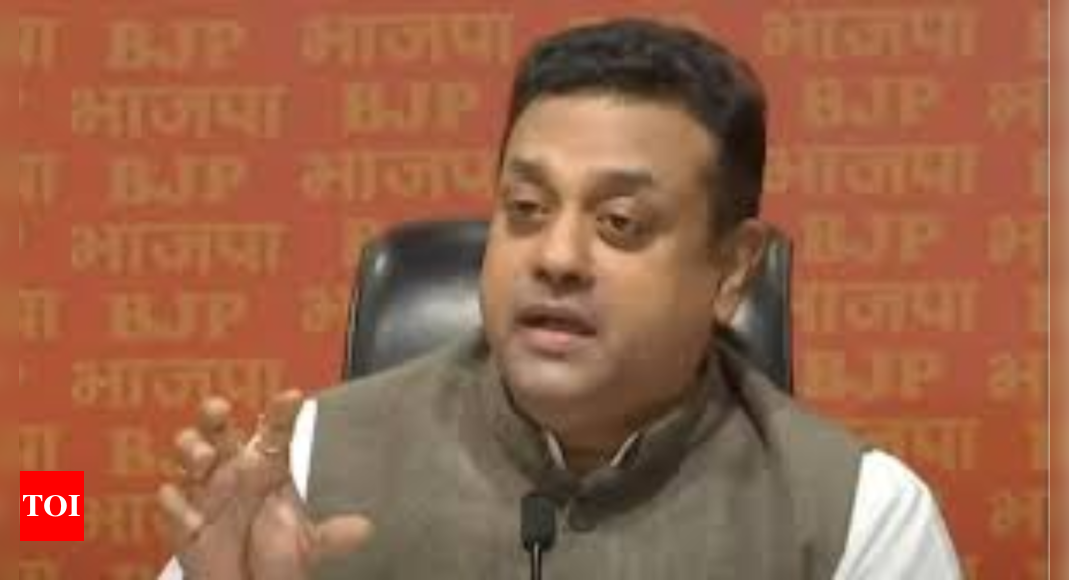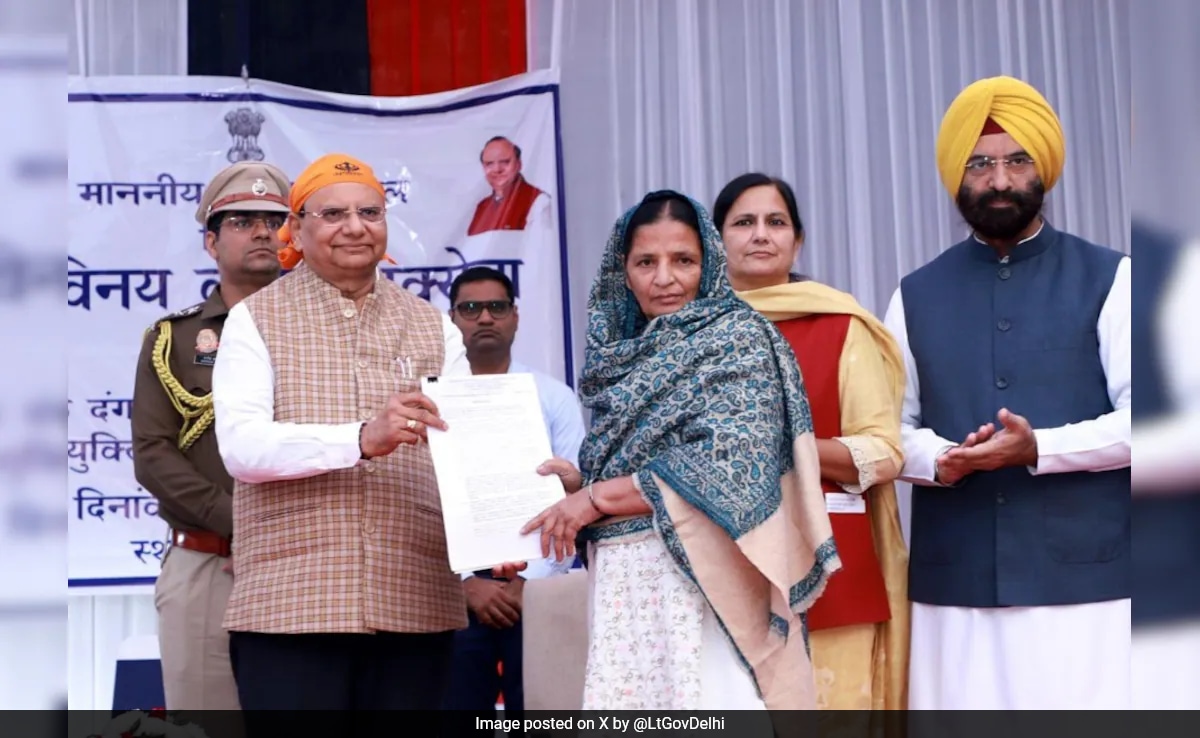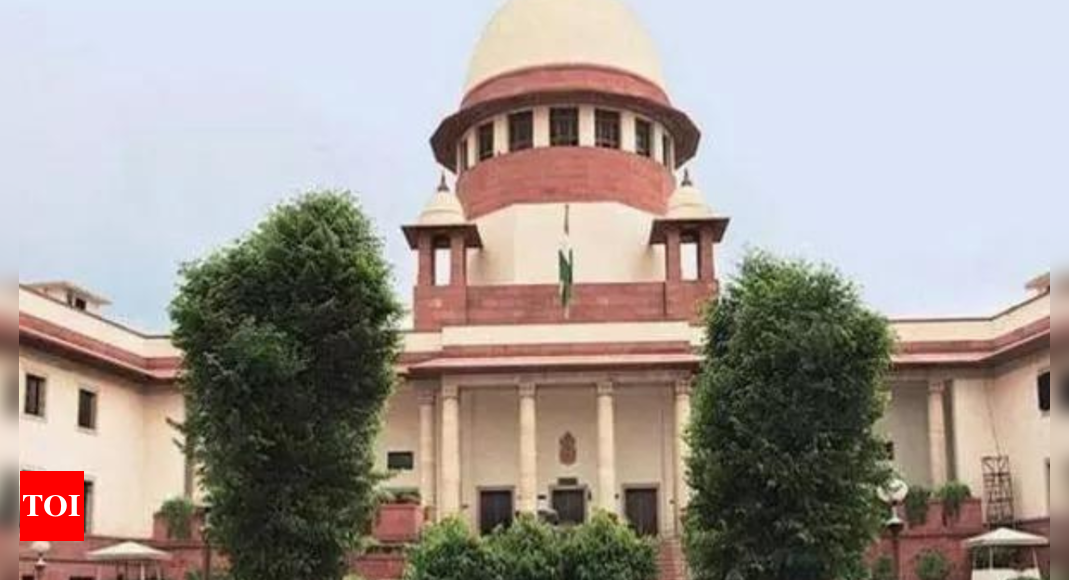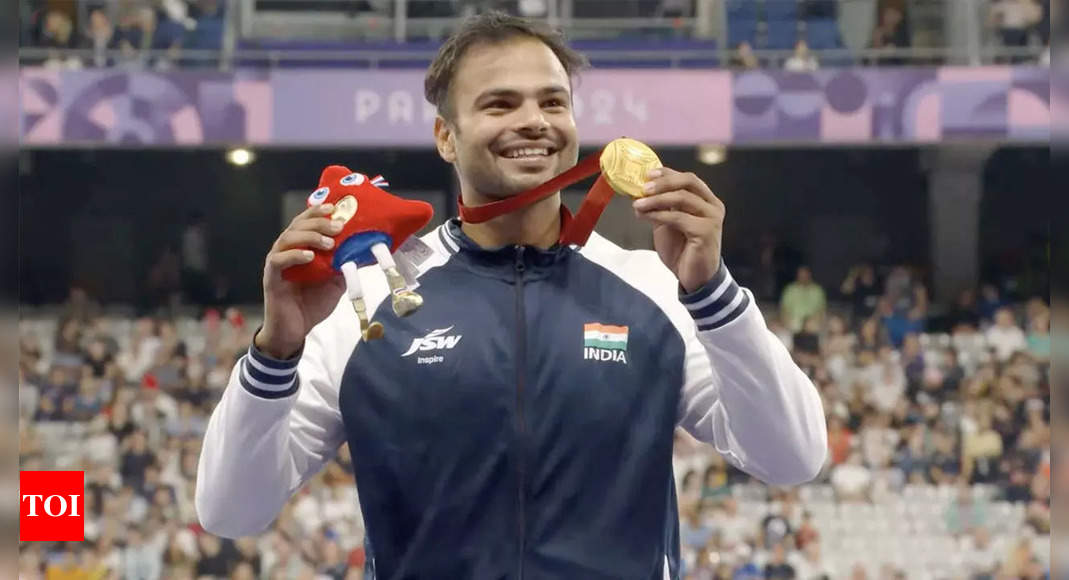
The 26-year-old from Sonipat, Haryana, surpassed his own previous Paralympic record of 68.55m set in Tokyo three years ago.
Antil remains the world record holder in this category with a throw of 73.29m.
Antil, the reigning world champion, joins shooter Avani Lekhara as the second Indian to defend a Paralympic gold medal.
Lekhara had achieved this feat in women’s 10m air rifle standing SH1 event at the Paris Paralympics after her initial win in the same event at the Tokyo Games.
Antil becomes part of an exclusive group of three Indians to have won two Paralympic gold medals, alongside Avani Lekhara and Devendra Jhajharia, who clinched javelin throw F46 gold in the 2004 Athens and 2016 Rio Games.
Antil’s recent achievements include winning gold in the World Para Athletics Championships in both 2023 and 2024, and in the Asian Para Games held last year in Hangzhou, China.
His second-round throw of 70.59m in Paris ensured his dominance, while his other significant efforts included 69.11m in the opening attempt and 69.04m in his fifth. However, he did not meet his personal goal of breaching the 75m mark.
The silver medal in the F64 category went to Dulan Kodithuwakku of Sri Lanka with a throw of 67.03m while Michal Burian of Australia claimed bronze with 64.89m.
Among other Indian competitors, Sandeep and Sandip Sanjay Sargar finished fourth and seventh with throws of 62.80m and 58.03m, respectively.
The F64 category includes athletes with lower limb impairments, who compete using prosthesis or are affected by differences in leg length.
Antil’s journey in the sport began after he lost his left leg below the knee in a motorbike accident in 2015. A Ramjas College student in Delhi, Antil was involved in wrestling before his accident led to the amputation.
Introduced to javelin by a para athlete in his village in 2018, he even competed against Tokyo Olympics champion Neeraj Chopra in the able-bodied Indian Grand Prix series in March 2021, finishing seventh with a throw of 66.43m.
On the same day, Yogesh Kathuniya secured his second consecutive Paralympic silver in men’s discus throw F-56 category with a season’s best effort of 42.22m.
The 27-year-old achieved the podium-clinching distance in his first attempt.
Brazil’s Claudiney Batista dos Santos set a new Games record with 46.86m to win his third consecutive gold, while Greece’s Konstantinos Tzounis took bronze with a throw of 41.32m.
The F-56 classification includes athletes with limb deficiencies, leg length differences, impaired muscle power, and limited range of movement.
Kathuniya developed Guillain-Barre syndrome at the age of 9, a rare autoimmune condition causing numbness, tingling, and muscle weakness that can lead to paralysis. His recovery and return to mobility were possible due to his mother, Meena Devi, who learned physiotherapy techniques to aid his rehabilitation.
Kathuniya is a commerce graduate from Delhi’s Kirori Mal College, and besides two Paralympic silver medals, he has three world championship medals to his name.
On Sunday, Preethi Pal made history by becoming the first Indian woman track and field athlete to win two medals at the Paralympics.
The 23-year-old secured bronze in the 200m T35 category with a personal best time of 30.01 seconds, adding to her earlier bronze in the 100m T35 category. She joins shooter Avani Lekhara as the only Indian women to have won two medals in a single Paralympics, with Lekhara securing a gold and a bronze in Tokyo.
Preethi, a farmer’s daughter from Muzaffarnagar in Uttar Pradesh, was born with significant physical challenges. Her lower body was in plaster for six days after birth, leading to weak legs and an irregular leg posture. She underwent various treatments, including wearing calipers for eight years from the age of five.
The T35 classification involves athletes with coordination impairments such as hypertonia, ataxia, and athetosis.
Nishad Kumar, hailing from Una in Himachal Pradesh, earned India’s third para-athletics medal and seventh overall at the Paris Paralympics with a silver in the men’s high jump T47 category.
The 24-year-old achieved a season’s best effort of 2.04m. Nishad, who lost his right hand in a grass-cutting machine accident at age six, had previously won silver in Tokyo with a jump of 2.06m.


